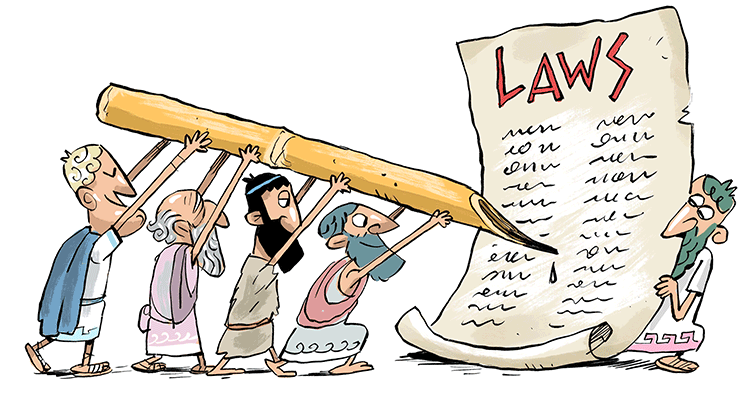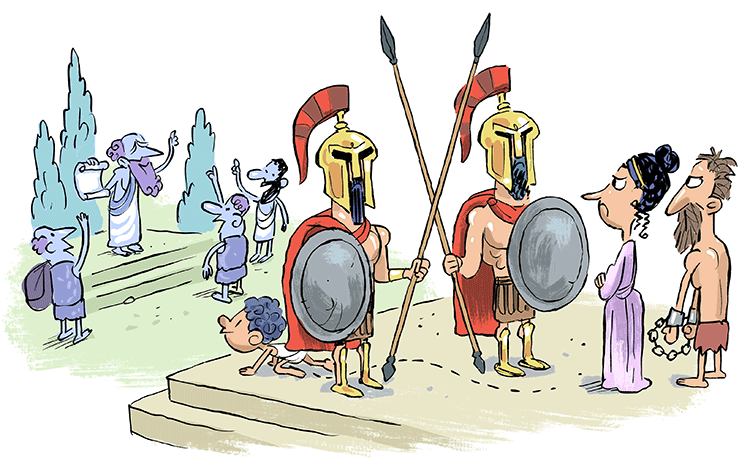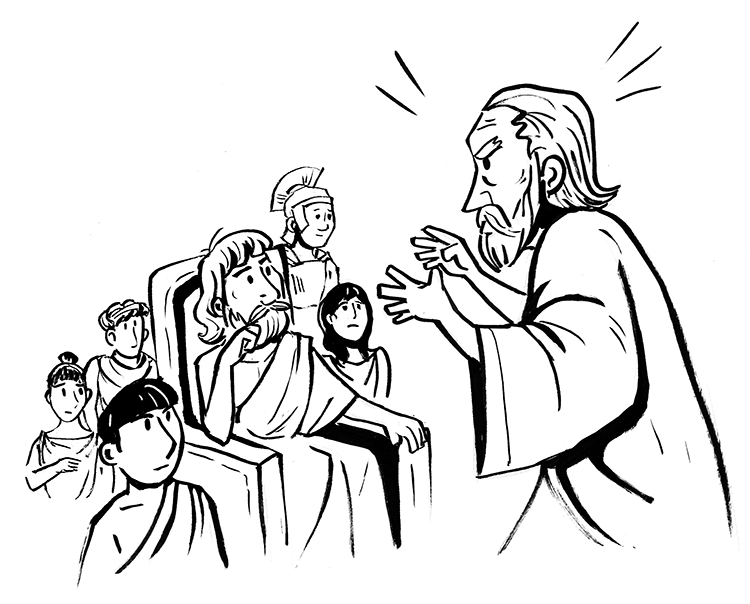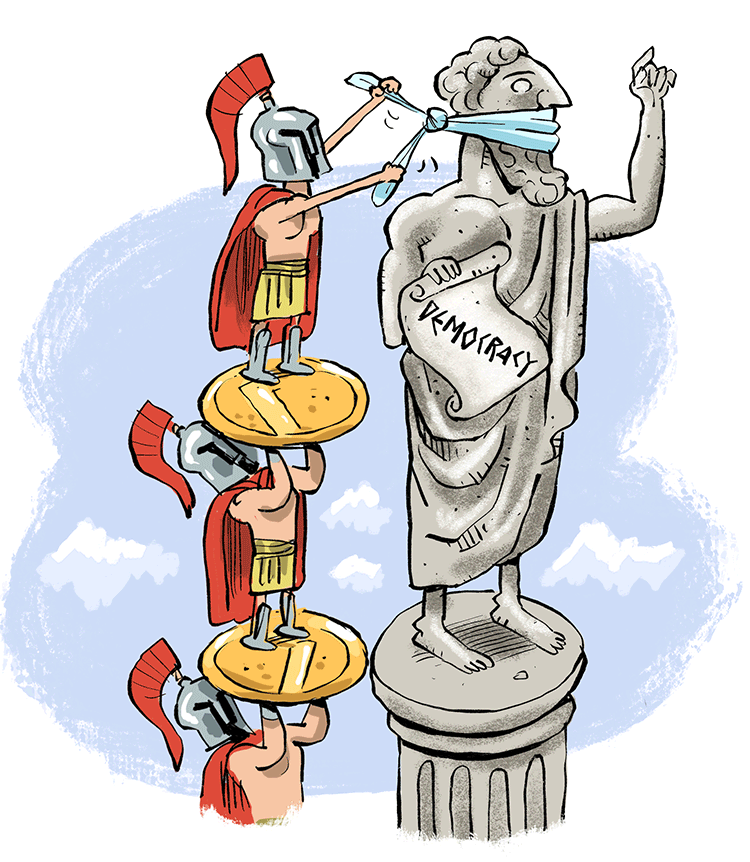“No one pretends that democracy is perfect or all-wise. Indeed it has been said that democracy is the worst form of Government except for all those other forms that have been tried from time to time…”
This quote, spoken in 1947 by the British Prime Minister Winston Churchill, perfectly encapsulates the mirage of human progress. We have at once done so much yet so little.
It was spoken at a time when democracy was being threatened all around the world. And it was meant to remind people that while not perfect, democracy is still the most ideal form of government out there.
When conducted correctly, it’s the only one that gives the people a fair voice in their government.
Knowing this might make it seem like democracy is a new concept. Something that emerged in recent history after trying many other types of government. But this is most certainly not the case.
Democracy has been around for millennia. It appears and disappears with the winds of history, and while it gets better with time, its fundamental constructs have remained the same for thousands of years.

Athens: The Birthplace of Democracy?
In fact, democracy first appeared in the human story in the 7th century BC, almost 2,800 years ago. In Greece. More specifically, in Athens.
Or so they say…
In reality, we don’t know if Athens was the first place to institute a democracy. But what we do know is that they were the first ones to write about it.
So, this means that Athens gets all the credit for being the world’s first democracy.
Some evidence suggests other Greek city-states may have had some form of democracy at the same time or even before the Athenians adopted it. But there’s no proof, so Athens gets to take all the glory.
In the end, it might not really matter who got there first. Athens grew to be one of the most well-known and influential city-states in all of the ancient world. And their peculiar form of government set them apart from both their friends and foes.
Another thing Athens had going for it was that it stuck to democracy. Despite repeated attempts by both internal and external actors to remove the power from the people, it almost always returned.
This resiliency has come to be a model for future democracies, and it helped solidify Athens’ legacy as the world’s first democracy.
What is Democracy?
Democracy is a really broad term that can take many different forms when put into practice. But despite all this diversity, the common thread is that it is a form of government in which the decision making power, in some form or another, belongs to the “people.”
The word itself is Greek. It comes from dēmos, which means the “entire population,” and krato, which means “rule.” Therefore, a democracy is quite literally a system of government in which the entire population rules.
Depending on the size of the society in question, this could mean that individuals actually vote on each and every issue concerning their state. This is known as a direct democracy.
In modern times, this isn’t usually the case, since our societies are too large.
Imagine if every time the government wanted to pass a law all 350 million people in the United States had to vote. It’s hard enough to pass laws with a few hundred representatives, let alone a few hundred million!
Instead, people elect representatives to make decisions for them. This is often called a representative democracy, an indirect democracy, or a republic.
Most modern democracies are actually republics, though we call them democracies. Direct democracies still exist, but usually only in small towns or cities.
However, in function, democracies and republics are very similar.

What Did Democracy Look Like in Athens?
One of the reasons Athens gets so much credit is because it operated almost as a pure, direct democracy. In its most mature form, participation was open to all male citizens, regardless of their wealth or status.
During the 5th century BC, when Athens was at its height, there were probably some 30,000-60,000 people eligible to participate in the ekklēsia, aka the assembly.
This group met once a month in Athens and anyone present could raise an issue. Then, the group would vote, and the majority ruled. So, in theory, if someone went and said that everyone has to wear pink on Wednesday, and the majority agreed, this would become law.
Of course, getting people to agree with your proposition was a whole other matter. But you did have the power.
One thing to note is that no foreigners, women, nor slaves were allowed to participate in the assembly. This meant that really only about 30 percent of the population had a voice in the government. By modern standards, we would likely not call this a democracy. But back then, when most cities were ruled by kings and despots, this was pretty good!
In addition to the assembly, there were many other institutions designed to carry out the affairs of the Athenian government. For example, there was a president, who was supposed to organize the assembly and facilitate its affairs. There was also the boulē, a group of 50 people elected on a rotating basis to manage the day-to-day issue of Athens, as well as make decisions during times of war.
There was also an extensive courts system designed to keep everyone in check.
Considering this was humanity’s “first” attempt at democracy, the Athenians do deserve some credit for designing a system that managed to keep power relatively distributed amongst the population and out of the hands of the most powerful and wealthy members of society.

The Rise of Athenian Democracy
Athenian democracy endured for nearly 500 years. But there was a time when Athens wasn’t a democracy.
Back in the 7th century BC, Athens was ruled by a group of archons, or aristocrats. In other words, the rich people who owned all the land.
This obviously wasn’t very fair, but when power is entrenched in the hands of the few, it’s hard to wrestle it away. Yet in 621 BC, Draco, an archon himself who had become irritated by the other aristocrats, replaced the existing oral code of law with a written one.
This got the ball rolling towards democracy. No longer could the archons enforce laws with “because I said so” logic.
Over the course of the next hundred or so years, different Athenian leaders, such as Solon, Areopagus, and Cleisthenes, all trying to remove power from the archons, instituted additional reforms to dole out more power to the people. This eventually led to the formation of the assembly, the boule, and the many other institutions that made up Athenian democracy.
Throughout its history, Athenian democracy remained relatively stable, though it faced several threats.
Corruption and ambition got in the way several times and led to coups, the most famous occurring in 508 BC. Not wanting any more of this, Cleisthenes led a charge to implement even more reforms.
The biggest threats, however, came during times of war.
After Athens’ disastrous defeat to Sparta in Sicily, the turmoil led to a brief period of tyranny before democracy was once again restored. Then, after Athens lost the Peloponnesian War, Sparta installed the “30 Tyrants,” a group of pro-Spartan leaders who ruled with an iron fist. Though they too were soon kicked out and the power was returned to the people once more.
The Athenians sure did love their democracy.

The Fall of Athenian Democracy
It wasn’t until around 338 BC when Philipp II of Macedon, father to Alexander the Great, defeated Athens that Athenian democracy finally fell. His pan-Greek federation lasted throughout his son’s rule, and after Phillip’s invasion, Athens was ruled by a Macedonian governor until Rome came onto the scene. The Romans picked a fight with Macedonia, and wanting their freedom, the Athenians chose to fight with the Romans.
Defeating Macedonia with the help of Rome ‘s victory allowed some elements of Athenian democracy to return, but it was never quite the same. Eventually, Athens was incorporated into the Roman empire and was governed by Roman provincial leaders.
After the fall of Rome, there were few democracies in the world, and it wasn’t until the French and American Revolutions of the 18th century that democracy became a realistic option for the people of the world.
The Legacy of Athenian Democracy
While it finally fell, Athenian democracy left a lasting impact on world history. It helped inspire the Roman Republic, which in turn served as the model for most modern democracies.
During the Renaissance age in Europe, scholars and artists worked to restore the glories of Ancient Rome and Greece, and part of this meant establishing governments similar to that which existed in Athens for so long
So, while few democracies in today’s world operate like the one in ancient Athens, it’s hard to imagine any democracy existing without the model set forth by the Ancient Greeks.
Written by Matthew Jones
Illustrated by Jean Galvao
